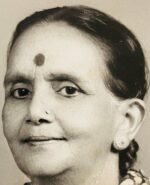Translated from the Hindi by Ananya Augustin Malhotra

Image used for representation.
1.
Lalita was also known as Lalli. She was probably about fifteen years old. Two years ago, she had graduated grade school and if she had continued her studies, this year she would have passed matriculation. But her mother and the women of the neighbourhood disliked seeing an adolescent girl of thirteen years clutching her books on the way to school. What good was it for an adolescent girl to go out in the market when she ought to stay within the shelter of her home.
And since then, Lalita, who was always the first in her class, began staying at home.
It tortured Lalita, at the cusp of childhood and adolescence, to sit at home. Was it any wonder that staying hidden in the house was perceived as a prison sentence by this bright thirteen-year-old girl, always up to something new, full of youthful eagerness to keep learning?
But she was helpless. So, Lalita, finding all her doors closed, spent all her time embroidering, knitting, and reading. There was much embroidery to do. After all, it was she who had to prepare the dowry for her own marriage. And the marriage of a Hindu girl was even more important than her birth.
She felt a great yearning to study, but what could she do? All there was to read were the popular magazines that came to her neighborhood like Maya, Entertaining Stories, and Companion. Only these magazines were available, and the frustration of not being able to do anything tortured Lalita into resignation.
Slipping herself into the shoes of the heroines of these stories, she would sacrifice herself for abandonment, courage, and love in that imagined world. Sometimes plunging into unrequited love, she committed suicide, and at other times, swinging in love’s rapture, she sang to herself—You are mine, you are my lover!
All this took place only in the solitary moments of afternoon or night; because when embroidering in front of her mother and sister-in-law, if her head cover came even just slightly undone, her aunt would interrupt,
“Oh Lalli, please cover your head.”
A little bit of her sari fell to the side from her chest, and her grandmother called out in a shrill voice,
“Hey Lalli, fix your sari. You have grown up now, but you still don’t know how to carry yourself.”
In this world heavy with displeasure, her every step controlled, sometimes Lalita found it difficult even to breathe. But what could she do? Where could she go? Who could she tell her sorrows?
Had her father found a boy for her, she would have been married. Perhaps her problems would have eased a little. She would have belonged to somebody, and somebody would have belonged to her. But without a god, arranging offerings, sewing, and embroidering… all of it seemed to be in vain. The market for worthy grooms was very expensive; people of average status could not find a suitable one easily.
2.
Lalita was still not married. She did not like to sit and daydream, straining her eyes aimlessly, but there was no other way. She made double-thread bed sheets; embroidered tablecloths, handkerchiefs, pillowcases, sweaters, socks, mittens, everything. After all, what else could she do to pass the time?
From morning until night, she embroidered, and in the afternoons when the older women napped, she read love stories. At night, when the lanterns were turned down, she began fantasizing about the imagined words of the delectable heroes of those stories, wishing she too could find such a hero—one who was handsome, rich, college—educated, and loved her more than his own life. He would be the apple of her eye; he would understand the spirit of her heart; he would give her everything. She didn’t consider herself any less than the heroines of her stories—Madhuri, Chandrika, Lila, Shabnam, and Prabhavati. The only thing she was missing was a man to love her.
Would people think a beautiful young girl of fifteen lacked a lover if seeing her walking alone in the streets, Ramesh coughed, Gopal put his hand on his chest, and even the schoolteacher living in the house behind stole glances at her; and Anis, the youngest son of Mr. Saiyad who lived on the second floor of the house in front sighed upon seeing her, began reciting romantic Urdu poetry, greeted her when no one was watching, and threw pebbles at her? Alas, however, none of these men fit the description of the heroes in her fantasy world.
Among them no one adored her for herself alone. Ramesh, Gopal, the schoolteacher, and Anis—all of them claimed that they love every young woman, married or not. Lalita feared these men, she reviled them all. She was especially irritated by Anis. It was he who teased her the most. The balcony of Lalita’s house faced the second floor of Anis’s house. He often found her alone there and teased her.
Lalita found herself in a strange situation—if she complained to someone at home, in return she got scolded: why did she go alone to the roof? Why did she go out in the streets? Why dis she dare leave the house? So, Lalita stayed quiet. She turned her back and kept on embroidering. All along, she kept thinking about her stories. That kind of lover didn’t exist amongst these men. They were all goons. Scoundrels! Despite her fear, she had scolded Anis once or twice before, but even when scolded, he laughed it off and continued to tease her.
Lalita had been reading a story, entitled “The handkerchief was mine.” She found the story really lovely. If she had been able to read it before, then…after finishing the story, she thought- I could have gotten rid of this Anis. In the story, the teasing goon had been mollified by the gift of a handkerchief he received from the young girl, Lalita. Not only that, but he also became a doctor, and she became a doctor’s sister-in-law.
Lalita was her name too. Why should she be afraid of Anis? And so, she started re-reading the story. From above, Anis saw her reading and started singing—
“When you ask for my life, what are you asking for?
What of my life? You will be my life…”
Lalita got irritated. She wished she could hit him with the book in her hand— “Do you not have a mother or a sister, scoundrel?”
But no, she had said this once or twice before, and upon hearing this Anis had laughed.
Clutching her book in her hands, heart beating fast, she lifted her face to ask, “Why do you bother me so?
“Bother? No, no! For you, my darling, my heart is available. After a long while, you’ve said something lovely.”
Anis at once bent down from the balcony railing to speak.
Trembling, Lalita then gathered up her courage to say— “What do you want?”
“Come! Just give me one token of yours, seeing it will give solace to the desperate heart. If nothing else, just me give that handkerchief.”
Anis pointed to the handkerchief that Lalita was embroidering.
“Okay, I will give you a handkerchief, and if anybody else wants one too, let me know, I love to embroider. The handkerchiefs I embroider are beautiful anyway.”
Saying these words like a text she had memorized, she ran downstairs.
But her heart was beating fast. Sweat was pouring from her forehead. But she would give him a handkerchief, certainly she would. She would embroider in the middle of the handkerchief— ‘Woman is power.’ The same had been written by Lalita in the story.
Why would she write ‘a gift to my brother’? Why should she write ‘a gift from your sister’? Why should she indicate that without these sentimental addresses, a woman has no standing anywhere?
With trembling hands, she started embroidering the handkerchief. Then she embroidered in golden letters— “Woman is power.”
3.
Lalita came down in a run. Oh god, what had happened! What an unlucky day!
On the terrace, Anis was now showing Hamid the handkerchief she had given him, saying, ‘Buddy! I have scored. Look at this token from my beloved.’
Lalita’s blood ran cold. In no time at all, talk of this handkerchief would spread throughout the neighborhood. Oh, how would she show her face then? What would her father think? Her brother would eat her alive! And her mother? Grandmother?
And she got wet with sweat. She felt as if the earth was spinning. Her head was spinning. Everything was spinning.
“Lalli!” Mother called from outside. Lalita trembled. “Hey, bring those warm clothes out here in the sunshine—today the sun has come out after many days.”
The life returned to Lalita’s body. She quickly opened the box and started taking out the clothes.
Slowly the day came to an end. How many times had Lalita died and come back to life that day; whenever someone merely called her name, her breath stopped.
In the afternoon her father called her, “Lalita, please bring that handkerchief in which yesterday you embroidered red flowers.” Lalita’s face turned pale. She quietly went indoors. Her father, though, got lost in other affairs and forgot about the handkerchief. But Lalita kept on trembling like the leaf of a tree throughout the day.
Her brother came home in the evening. Facing him, Lalita was terrified, but he said nothing. Lalita made a vow to God in her heart. Whatever were to befall her, she planned to ask Anis to return her handkerchief.
She gave up the idea of improving him. Scoundrel! Bastard! In showing Hamid the handkerchief, Anis was making false boasts.
When darkness fell, she climbed on the roof. Hamid and Ahmed were standing on the front balcony instead of Anis. They both laughed seeing her peeping. Lalita turned back.
“Your lover has gone to eat,” Hameed said. Lalita ran downstairs.
“Give us something too,” Ahmed called in a hushed voice.
Lalita did not sleep one wink the whole night.
4.
“Lalli! Oh, Lalli!” Mother called out in a venomous voice— “Oh, why didn’t you die as soon as you were born? Why, oh why, you wretch? You have now tarnished our family’s honor!”
Lalita stood stunned. In one movement, her mother, aunt, and sister-in-law entered the room together.
“Oh god, what excellent traits contained in one tiny wench,” Auntie said, “If you desired such a husband, you should have told your father. Somewhere, he could have fixed you up.”
It was as if stones fell on Lalita’s head and knocked her unconscious. Her sister-in-law said, “My sister, by becoming so literate you have lost everything. Did you not have enough sense that even if you had an affair, at least don’t give evidence of it. You have even given this handkerchief and damaged our whole family’s honor. Oh, God!”
“This learning and independence have made her lose everything.” The old grandmother came and said, “This sixteen-year-old wretch used to roam openly in the streets. She went to the balcony. Now let her suffer the consequences, as word has spread throughout the whole neighborhood. If the community gets wind of this, then it will be difficult for her to get married.”
Lalita kept listening to everyone with her head bowed. What could she say, who would believe the truth of what happened? Her father came in the evening. He had come outside after hearing everything from Lala Ramnath.
He plopped down on the stool in the courtyard. He said just once, “Lalli! For which previous life are you taking revenge on us? Why didn’t you die as you were born?”
And Lalli was crying, silent and wordlessly. Everyone was left hungry today. No one lit the stove in the house. Lalli kept wishing the earth would open beneath her feet.
But the earth did not open, everything remained the same.
5.
Days passed. Gradually, everyone got used to what had happened.
However, to go out in the street, to go to someone’s house, even to go alone to someone’s wedding— all were off limits for Lalita. She was strictly forbidden to go on the roof.
Her father was trying hard to find a boy for her to marry, but he was unable to find any. If a girl’s family did not have the ability to pay the groom’s weight in money, it was considered foolish to look for a groom from a nice family.
Lalita’s father, after great pains, found a path forward in his duty to give away his daughter. He somehow managed to convince Babu Shankarlal to accept Lalita for his son, along with one thousand rupees and ten grams of gold.
The pre-engagement ceremony took place. Upon seeing the girl, everyone liked her, and the boy was declared ready for engagement. They were to be engaged the very next day. Fifty kilograms of laddus, eleven platters, one bolt of coarse cotton, one ring and one hundred and one rupees. Showing all these items to the neighbors, her grandmother said— “Listen, somehow our hard work has paid off. That’s it, tomorrow we will send the engagement items and get her married by March.”
“Amma! Oh Amma!” Suddenly Lalita’s father called. Grandmother hurried inside seeing her son entering the house in a panic. “Why do you create a spectacle calling people so early!”
Lalli’s father said sternly, “Who gets married so cheaply these days! Listen, Shankarlal’s letter has arrived…”
And grandmother listened holding her breath,
Dearest Babu Rammanoharlal Ji,
I, Shankarlal, resident of Mithua, am in your service. May these good wishes reach you.
Furthermore, I would like to let you know that everyone here in my family is doing well in all respects. May the ever-beneficent goddess Ganges grant you safety and prosperity.
Blessings from the goddess above. I must tell you that we have heard a terrible thing about the girl, and the one who gave us the news is highly respected. There can be no doubt in what he told. We have heard a few days ago that the girl had a relationship with some Muslim boy. So much so that there is even evidence of it in the form of a token of a handkerchief. In such a condition, this girl is not suitable for our family. Please do not send the engagement items.
Only a little has been written, but hopefully much can be understood. Please forgive any errors.
Also, read two Hindi poems by Mohan Rana, translated into English by Moulinath Goswami, and published in The Antonym:
Follow The Antonym’s Facebook page and Instagram account for more content and exciting updates.



























0 Comments